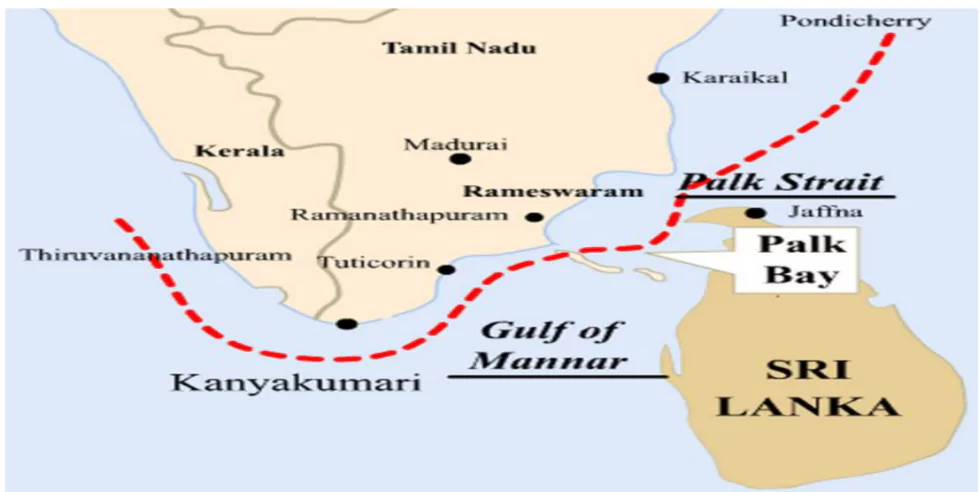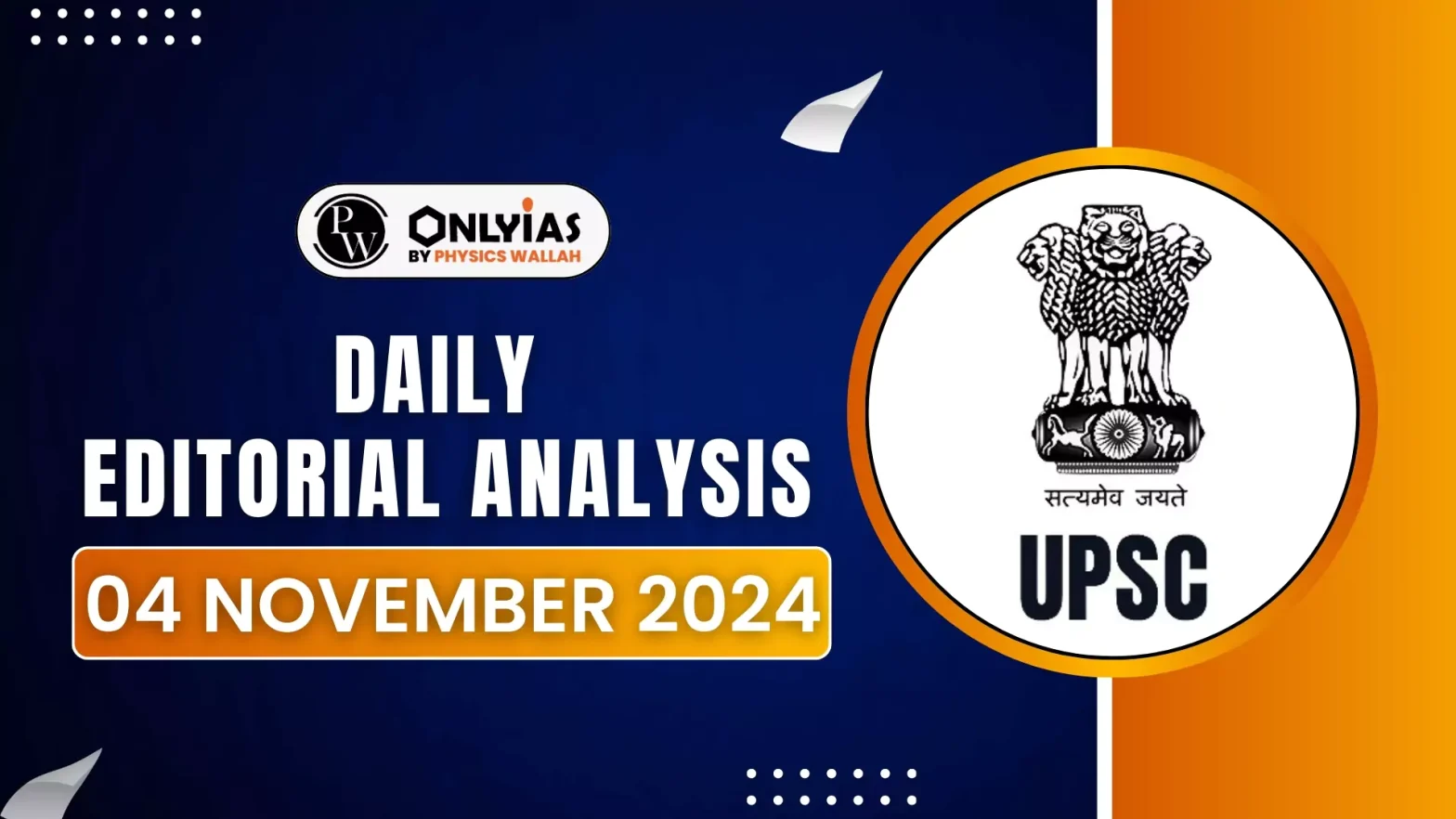At the sixth meeting of the India-Sri Lanka Joint Working Group on Fisheries in Colombo on October 29, India emphasised the need for a dialogue between fishermen from both countries to find sustainable solutions for the Palk Bay Dispute.
Geographical and Historical Background of Conflict

- The Palk Bay, a narrow strait between Tamil Nadu (India) and Sri Lanka’s Northern Province, has long sustained fishermen from both sides.
- The 1974 and 1976 agreements established an International Maritime Boundary Line (IMBL), creating distinct fishing zones.
- However, Tamil Nadu fishermen frequently crossed this boundary seeking better catches, as enforcement was initially lax.
- Additionally, during Sri Lanka’s civil war (1983–2009), northern fishermen were displaced, and naval patrols decreased, leaving Tamil Nadu fishermen largely unchecked when crossing the boundary.
- Following the war’s end in 2009, Sri Lankan fishermen returned to find Indian fishermen in their waters, leading to rising conflicts and tensions, along with intensified patrolling and arrests.
Enroll now for UPSC Online Course
Current Situation and Arrests
- Since 2009, Tamil Nadu’s fishermen, especially from Ramanathapuram, have faced frequent arrests for crossing the IMBL.
- Arrests have risen, with harsher penalties for repeat offenders. As of October 27, Tamil Nadu Chief Minister M.K. Stalin reported that 140 Indian fishermen and 200 boats remain in Sri Lankan custody.
- The Tamil Nadu government regularly seeks central assistance, and the Indian government intervenes to secure releases, underscoring the need for a lasting solution.
Issues and Concerns
- Livelihood Concerns:
- Fishing is the primary livelihood for communities on both sides of the Palk Bay.
- Indian fishermen often cross the IMBL due to resource depletion in Indian waters, leading to arrests and economic hardships for their families.
- Environmental Concerns:
- Sri Lankan fishermen, especially from the Northern Province, are concerned about “destructive bottom trawling” by Tamil Nadu fishermen, who use advanced equipment like trawlers.
- This method depletes fish stocks, damages marine ecosystems, and leads to biodiversity loss by indiscriminately dragging out young fish,their eggs and even other marine animals.
| Note: India enforces a 61-day fishing ban in the Palk Bay from April 15 to June 14 to allow fish breeding and resource preservation. Following the ban, a sudden surge in fishing activity often leads to increased conflicts. |
Potential Solutions and Recommendations
- Government Collaboration: India has proposed direct meetings between Indian and Sri Lankan fishermen to foster mutual understanding and sustainable practices, gradually phasing out methods like bottom trawling.
- A 2010 agreement offers Tamil Nadu fishermen time to adopt alternatives while respecting Sri Lankan boundaries.
- Alternative Fishing Practices:
- India should advance its 2017 deep-sea fishing project, allowing Tamil Nadu’s fishermen to fish beyond coastal limits, reducing Palk Bay dependency.
- Sustainable options like marine cage farming, seaweed cultivation, and sea ranching could diversify income sources and relieve Palk Bay pressures.
Alternative Fishing Practices:
- Marine cage culture (Net-pen culture):
- It is a method of raising fish in the ocean by keeping them in a net cage that allows water to flow freely.
- The cages are made up of a floating frame, net, and mooring system, and can vary in size and shape.
- Seaweed cultivation:
- Seaweeds are wonder plants of the sea, the new renewable source of food, energy, chemicals and medicines with manifold nutritional, industrial, biomedical, agriculture and personal care applications.
- Sea ranching(Ocean ranching)
- It is a practice that involves raising fish in a controlled environment and then releasing them into the ocean to grow and be harvested
|
Check Out UPSC Modules From PW Store
- Strengthening Legal Framework:
- Continued dialogue through the India-Sri Lanka Joint Working Group on Fisheries could establish clear fishing agreements, enforce penalties for ecological violations, and provide incentives for sustainable practices.
- A comprehensive legal framework would help prevent arrests and support conflict resolution, with penalties for ecological violations and incentives for sustainable practices.
- Government subsidies could support the high cost of deep-sea vessels essential for sustainable fishing.
- Support for Sri Lankan Fishermen:
- India could aid Sri Lankan Northern Province fishermen—still struggling post-civil war—with infrastructure, financial assistance, and modern equipment.
- Such support would promote goodwill and encourage Sri Lanka to address Tamil Nadu fishermen’s concerns, fostering cross-border cooperation.
Conclusion
A collaborative approach between India and Sri Lanka is essential to resolve the Palk Bay dispute, balancing livelihoods, promoting sustainable fishing practices, and fostering goodwill. This will ensure a cooperative future for the fishing communities on both sides.
![]() 4 Nov 2024
4 Nov 2024

